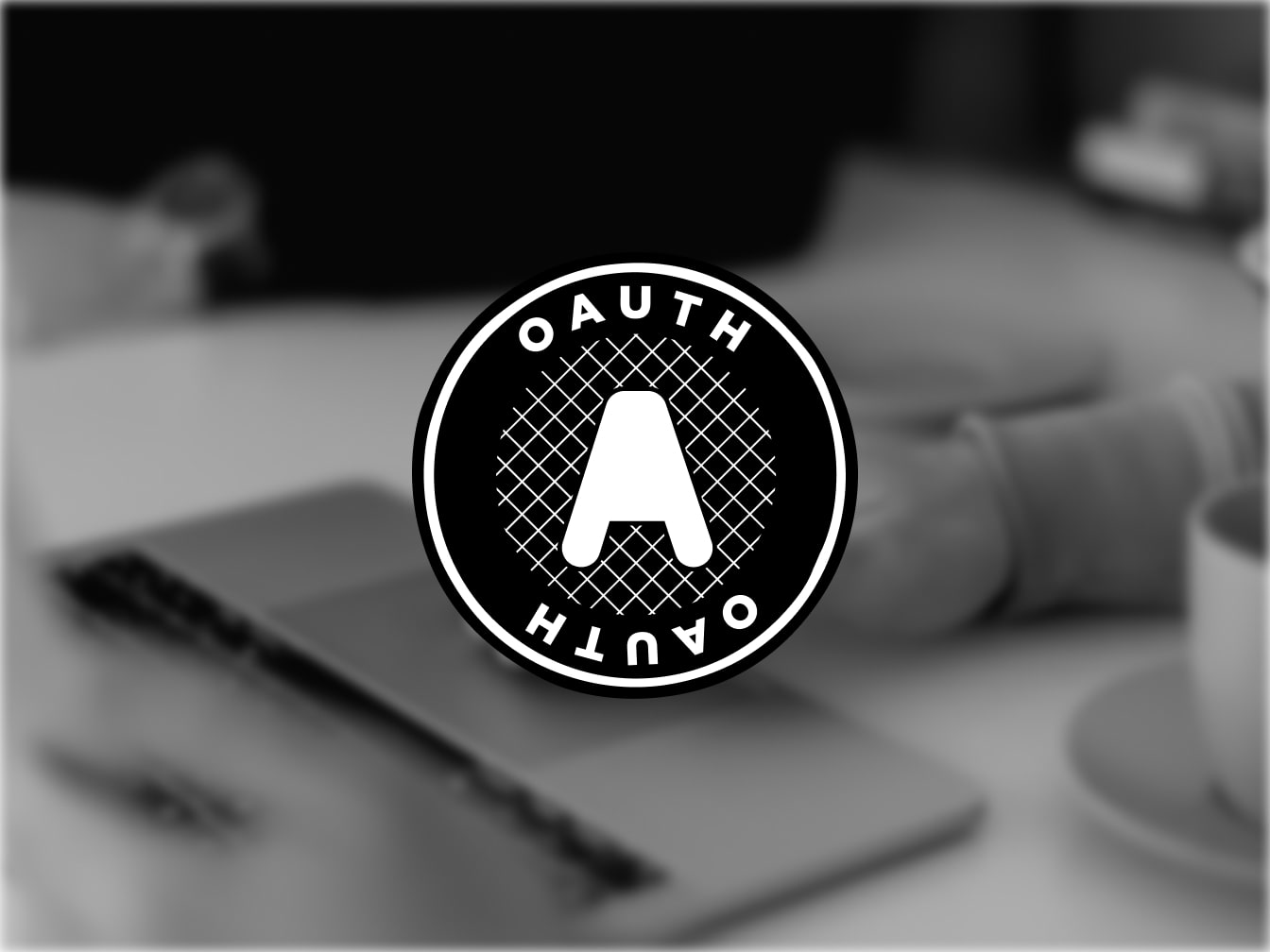In this post we’ll describe on how to use OmniAuth in combination with Rails and Devise to support authentication of existing and new users without asking for email/password combinations.
It would be best to demonstrate the concept on a live application. So let us start off with the new application:
#execute from terminal
rails new oauth_example
cd oauth_example
rails g scaffold city name:string postcode:stringWe need to add devise:
#Gemfile.rb
gem 'devise'Then we’ll make sure we have all the required dependencies and that our User model’s all set up:
#execute from terminal
bundle install
rails generate devise:install
rails generate devise user
rake db:migrateAll our controller methods should require authentication (for this example of ours)
#app/controllers/application_controller.rb
before_action :authenticate_user!We’re gonna set the default route to be the city index page
#config/routes.rb
root 'cities#index'Now you can test out devise over at http://localhost:3000/
Single Model
In cases when we only need to support one model for OmniAuth (User for example) then it’s quite simple and it all works reasonably well out of the box. We just need to add the appropriate OAuth strategy (Facebook in this particular case) and everything will magically work.
Omniauthable
#Gemfile.rb
gem 'omniauth-oauth2', '1.3.1'
gem 'omniauth-facebook'We’ll initialize Devise - make sure you open up a Facebook app and then add the correct APP_ID and SECRET_ID to the initializer. The Facebook app needs to be created over here
For the Facebook app to work you’ll need to add a valid Oauth redirect URL under Product/Facebook Login/Settings
http://localhost:3000/users/auth/facebook/callbackIn order to do this you will need to add “Settings/Basic” App Domains with the value localhost
#config/initializers/devise.rb
config.omniauth :facebook, ENV['FACEBOOK_APP_ID'], ENV['FACEBOOK_SECRET_ID'],
scope: 'email',
info_fields: 'email'
Then we need to make our model aware of this:
#app/models/user.rb
devise :omniauthable, omniauth_providers: [:facebook]#execute from terminal
bundle installWe then add this to the bottom of the cities index html.erb page:
#app/views/cities/index.html.erb <% if user_signed_in? %> <%= link_to('Logout', destroy_user_session_path, :method =>
:delete) %> <% else %> <%= link_to('Login', new_user_session_path) %> <% end %>Change routes for users to:
#config/routes.rb
devise_for :users, controllers: { omniauth_callbacks: 'users/omniauth_callbacks' }Generate controller action
#execute from terminal
rails g controller users/omniauth_callbacks#app/controllers/users/omniauth_callbacks_controller.rb
class Users::OmniauthCallbacksController < Devise::OmniauthCallbacksController
def facebook
# You need to implement the method below in your model (e.g. app/models/user.rb)
@user = User.from_omniauth(request.env["omniauth.auth"])
if @user.persisted?
sign_in_and_redirect @user, :event => :authentication #this will throw if @user is not activated
set_flash_message(:notice, :success, :kind => "Facebook") if is_navigational_format?
else
session["devise.facebook_data"] = request.env["omniauth.auth"]
redirect_to new_user_registration_url
end
end
def failure
redirect_to root_path
end
endand finally we add this to our app/models/user.rb
#app/models/user.rb
def self.new_with_session(params, session)
super.tap do |user|
if data = session["devise.facebook_data"] && session["devise.facebook_data"]["extra"]["raw_info"]
user.email = data["email"] if user.email.blank?
end
end
end
def self.from_omniauth(auth)
user = User.find_by('email = ?', auth['info']['email'])
if user.blank?
user = User.new(
{
provider: auth.provider,
uid: auth.uid,
email: auth.info.email,
password: Devise.friendly_token[0,20]
}
)
user.save!
end
user
endI’m adding the Provider and UID to the User model using the next migration. This is just a poor man’s version as I am cheating a little by using only one user model. For multiple Auth providers (LinkedIn, Google+ …) we should keep our authorizations somewhere else so we would require one more table. This is described in detail over here
#execute from terminal
rails generate migration add_oauth_fields_to_users provider:string uid:string
rake db:migrateThis should be enough to have a working OAuth set up. All of the code is available here
Multiple Models
When we need to support multiple models for OmniAuth, the whole thing gets a tad more complicated. The default “omniauthable” Devise way of doing things is not actually supported for multiple models. Instead, what we need to do is use OAuth as a middleware and we need to write routes by hand to make it work.
Using middleware
This requires us to remove the :omniauthable argument from our User model(app/models/user.rb)
devise :omniauthable, omniauth_providers: [:facebook]
Remove the configuration setup from devise.rb
#config/initializers/devise.rb
#config.omniauth :facebook, ENV['FACEBOOK_APP_ID'], ENV['FACEBOOK_SECRET_ID'],
# scope: 'email',
# info_fields: 'email'Create a new file called oauth.rb in the /initializers folder
#config/initializers/oauth.rb
Rails.application.config.middleware.use OmniAuth::Builder do
provider :facebook,
ENV['FACEBOOK_APP_ID'],
ENV['FACEBOOK_SECRET_ID'],
scope: 'email',
info_fields: 'email',
auth_type: 'rerequest'
configure do |config|
config.path_prefix = '/users/auth'
end
endRemove the Devise routes from config/routes.rb
*devise_for :users~~, controllers: { omniauth_callbacks: 'users/omniauth_callbacks' }~~*
Now it should look like this:
#config/routes.rb
devise_for :usersAdd a manual route:
#config/routes.rb
devise_scope :user do
get "/users/auth/facebook/callback" => "users/omniauth_callbacks#facebook"
endWe need to add a “Facebook” button on our Sign Up page. Let’s generate the Devise Views so we can modify them:
#execute in terminal
rails generate devise:viewsPut Facebook the button just before last line
<%= render "devise/shared/links" %>And then
#app/views/devise/sessions/new.html.erb #put these three lines <%= link_to('/users/auth/facebook', {:class => "btn
btn-primary"}) do %> Facebook OAuth <%- end %>
<br />
#before this line <%= render "devise/shared/links" %>One more thing we need to do is we have to gracefully handle failure. We’ll do this by adding the on_failure block
#config/initializers/oauth.rb
on_failure do |env|
#we need to setup env
if env['omniauth.params'].present
env["devise.mapping"] = Devise.mappings[:user]
end
Devise::OmniauthCallbacksController.action(:failure).call(env)
endThis leaves us with a setup that can be easily extended to multiple models merely by adding some routes and handlers. Since we’re relying on middleware here and this means we have full control over the entire configuration and making everything work ought to be fairly straightforward. We simply need to do the same thing we’ve already done thus far and replace “user” with the respective model that we’re adding (e.g. “employer_user” or whatever it is that we’re using).
The full working example with middleware OmniAuth is available over here
Testing
When testing this, we can’t really use Facebook so what we do instead is we mock Facebook’s response.
module OmniauthMacros
def mock_auth_hash
OmniAuth.config.mock_auth[:default] = OmniAuth::AuthHash.new(
'provider' => 'facebook',
'uid' => '123545',
'info' => {
'name' => 'mockuser',
'image' => 'mock_user_thumbnail_url',
'first_name' => 'john',
'last_name' => 'doe',
'email' => 'john@doe.com',
'urls' => {
'public_profile' => 'http://test.test/public_profile'
}
},
'credentials' => {
'token' => 'mock_token',
'secret' => 'mock_secret'
},
'extra' => {
'raw_info' => '{"json":"data"}'
}
)
end
endIn RSpec we do this before running our tests:
RSpec.feature 'Facebook login management', type: :feature do
before(:each) do
OmniAuth.config.test_mode = true
mock_auth_hash
end
scenario 'Should login over facebokok do'
visit '/users/sign_up'
click_on 'Facebook OAuth'
#.....
end
endThis should be everything you need to successfully use OAuth in your Rails application.


